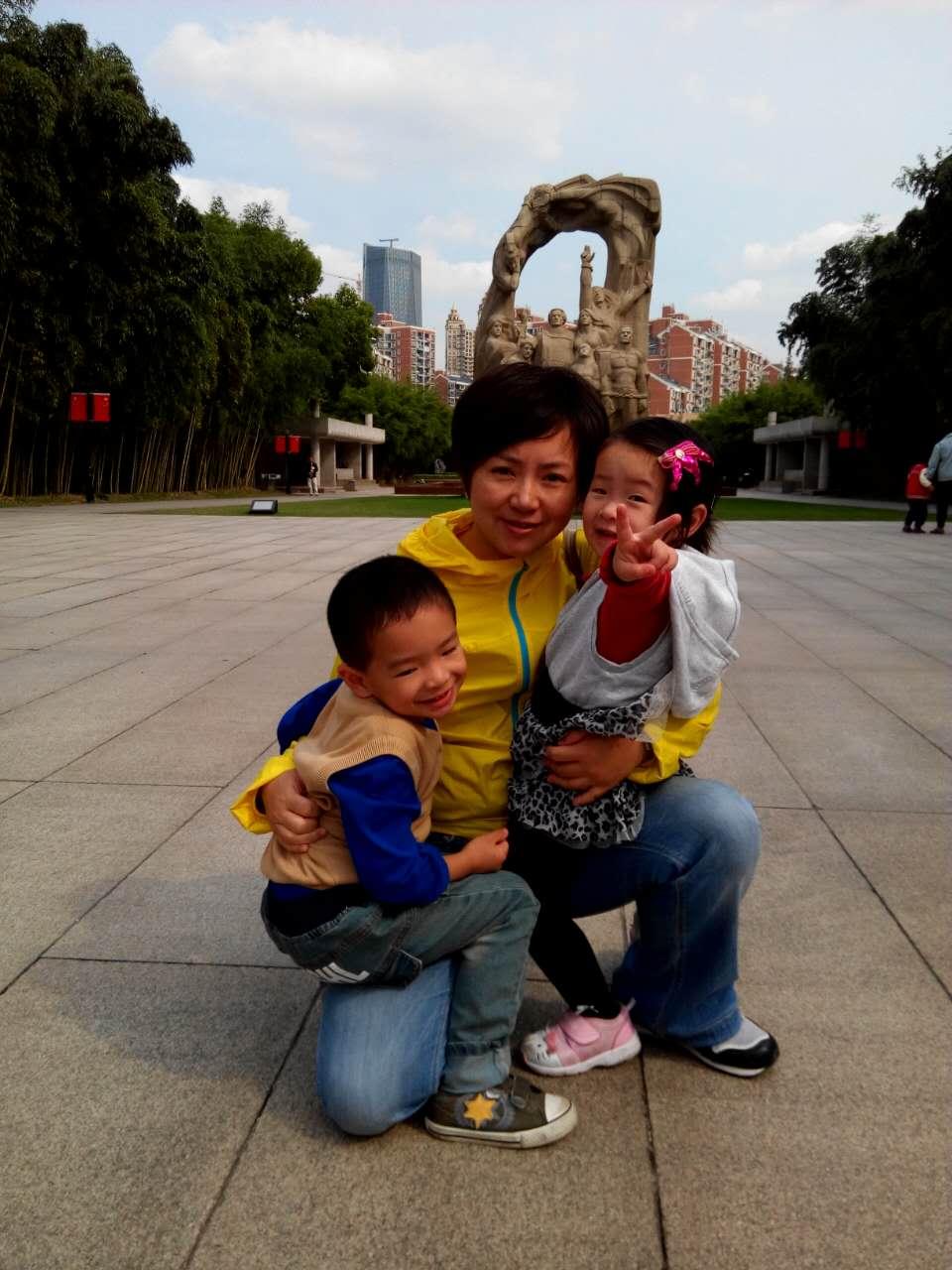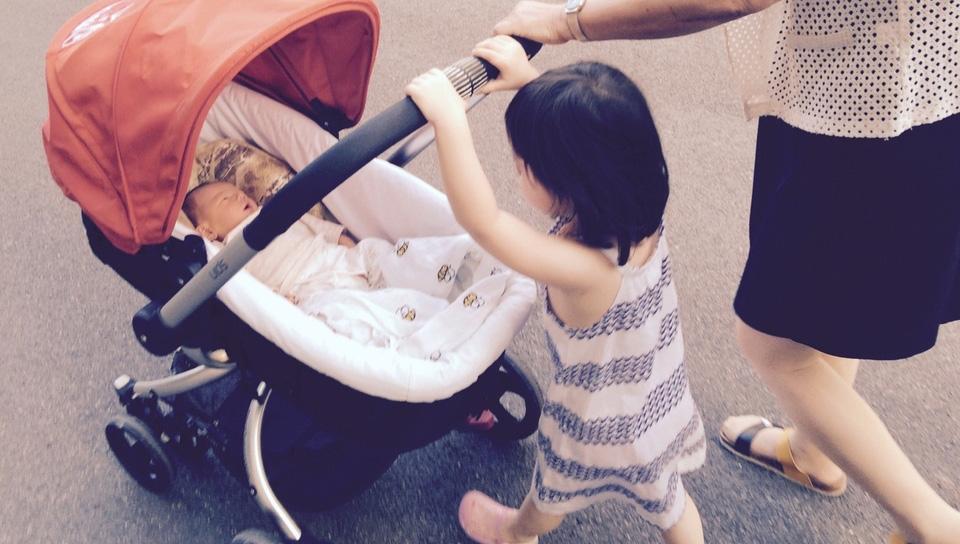Before China’s one-child policy was dropped, some women had babies in secret
Rebecca Kanthor had a second child in China before the one-child policy change, but she's not Chinese so it didn't apply to her.
Four months ago, my husband and I gave birth to our second child, a sweet baby boy. When I walk with him outside, holding onto my 3-year-old daughter’s hand, the neighborhood aunties run over. They make a fuss over my kids and remind me I’m the luckiest of moms.
My husband is Chinese, but because I’m a foreigner here, we didn’t even think about the one-child policy when we decided to have another child. In addition, my husband is self-employed, so government policies don’t affect him as much as those people working in the public sector.
Not everyone is so lucky. When I saw the news that China was finally changing the rules to allow all couples to have two children, I immediately called up my friend Xiao Ge (I'm using a pseudonym to protect her privacy). She lives in a small city in central Henan Province. Just five weeks before the announcement, she gave birth to her second child — in secret.
I visited her when her son was just a month old. She spoke softly, cautious about telling her story. She’d grown up in a large family and always wanted a second child.
“We wanted our daughter to have a playmate, someone to help her if she has problems. And also our families put pressure on us. They’re traditional and they think having one child is not enough,” Xiao Ge said. Even though girls are cherished more than before, many families still want a son.
Xiao Ge and her husband tried for years to have another child — their daughter is 6 — and finally this year she got pregnant. But she and her husband work for a public university. And in China, people with government jobs face more scrutiny. If you are found breaking the rules, you could get fired; your employer would face penalties as well. Xiao Ge knew that if her employer found out she was pregnant she and her husband would both lose their jobs.
Xiao Ge is not a rule breaker. But she wanted a baby. So early in her pregnancy, before she began to show, she went to her supervisor and asked for sick leave. Then she stayed at home for the remainder of her pregnancy, rarely leaving the house. Every time she went to the hospital for a prenatal check, she worried she’d be found out. She only told a few close friends.
Still, it was easier than it would have been just a decade years ago, she said.
“Back then you’d have to get approval to have a child before you went to the hospital. Nowadays, hospitals don’t care. We got a birth certificate.”
What they didn’t get was a hukou, that all important document that’s like a residence card or a passport. A hukou gets you access to healthcare, schooling and other public services in China. Without one, life can be difficult.
I have another Chinese friend who ran into a similar problem. Christina, who lives in Shanghai, also worked for a public university. And she gave birth to her second child about three years ago.
“In the first few months, I went back and forth about whether to have the child. There was so much to consider. There was so much pressure,” she said.
“I talked it over with my husband. I thought I can definitely find another job, but trying for another child would be difficult.”
So Christina decided to quit. When her parents found out, they were not supportive — to say the least.
“They were so upset, they couldn’t understand at all why I wanted to give up my job to have another child. My father was still yelling at me even when I was six months pregnant.”
Families who have more than one child sometimes joke with their kid about how much they had to pay just to have them. Christina knew she’d have to pay a fine in order to get her daughter a hukou, but when she found out how much, she was shocked.
The lowest possible fine at that time in Shanghai was the equivalent of $37,000 — two to three times the couple's annual income. They couldn’t afford it, so they just put aside thoughts of getting a hukou for their daughter.
Meantime, Christina says her neighbors thought she was crazy. They knew her family wasn't wealthy, so why should she have more than one child; that’s something only peasants would do.
Back then, Christina felt depressed. Now that her children are 3 and 4 years old and she looks much happier. Her parents are much more supportive now and are doting grandparents to both of her children.
A few months ago, she went to the police to try again to get a hukou so her daughter could go to nursery school. This time, she got it — without even having to pay the fine.

As for Xiao Ge, she’s stuck in limbo, since the policy change won’t go into effect until probably next year. She’s uncertain whether her child will be able to get a hukou like Christina’s child did. Xiao Ge lives in a part of the country that’s stricter about the family planning policy, and since she still has her public sector job she doesn’t dare tell anyone. She and her husband will try to buy a fake birth certificate so they can change their baby’s date of birth to after the policy announcement. They’ve even talked about getting a divorce so that her husband wouldn’t lose his job if they’re found out. Yet she says she feels hopeful.
“I think we will just put off the hukou. We will wait and see,” she says.
What was surprising to me was that for most other couples, the change in policy might not mean much of anything at all. When I asked one friend whether she was planning a second child, she replied, “Tai Mafan — it’s just too much of a hassle.”
None of Christina’s friends have two children. She says they’re always saying things like, Wow you’re so great, I’m so envious, you have two kids. But when Christina says, you can have two kids too, they reply, “I don’t want more. One is enough.”
Still, the news has tired moms talking, as they consider how the policy change might affect their lives. In one moms group, the joke is, “As long as the government doesn’t say we have to have a second child!”
